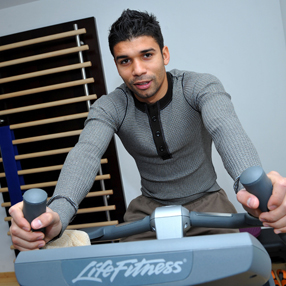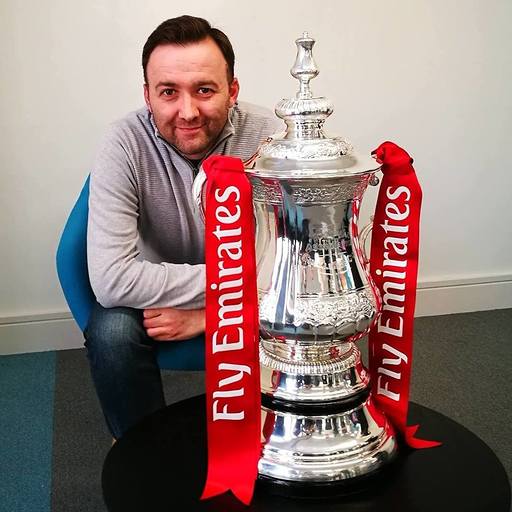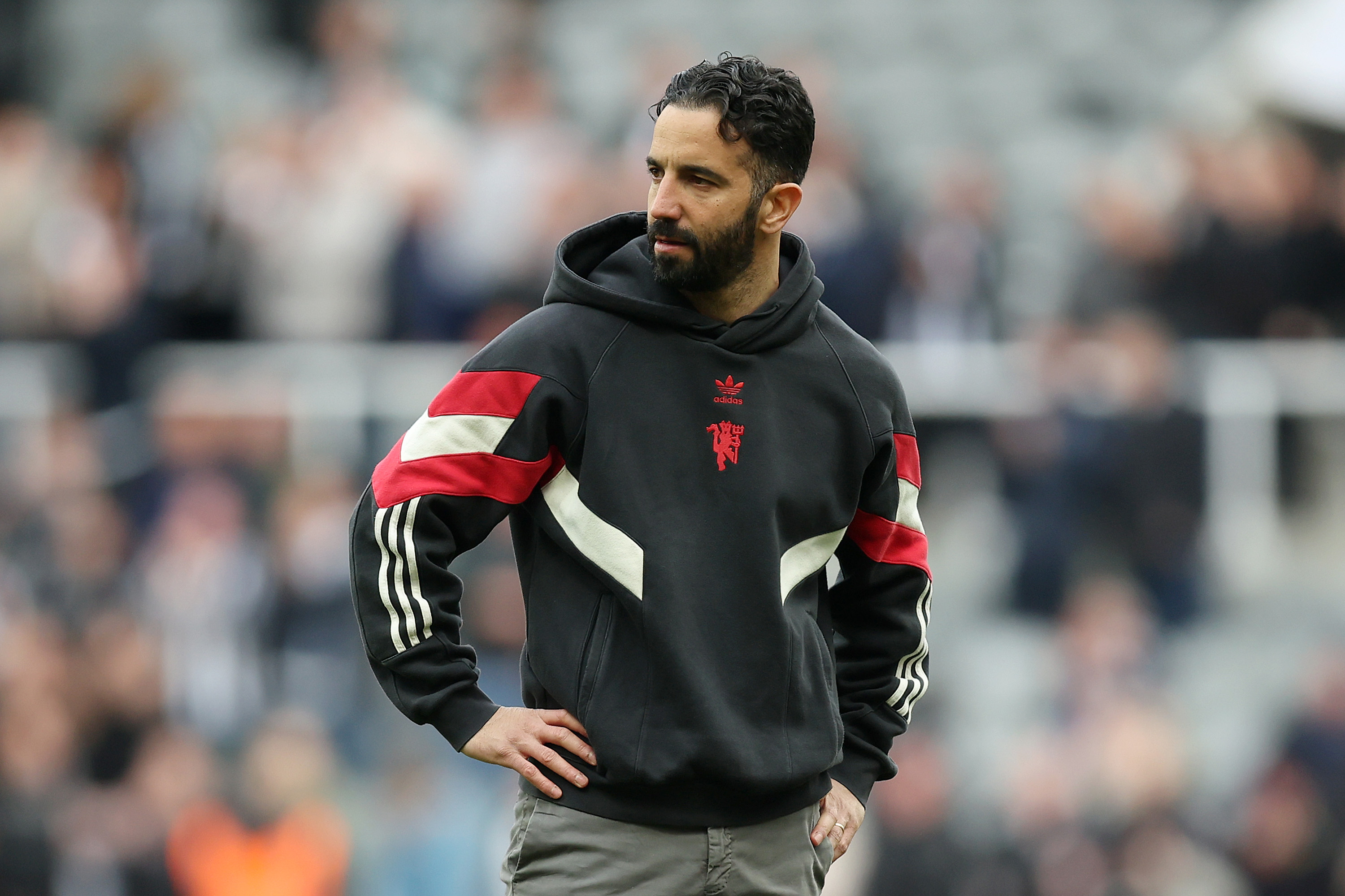Eduardo: Q & A
"In Rio, things are quieter. They’ve heard of me, but don’t know my face..."

In February 2008, Arsenal topped the Premier League when Birmingham City defender Martin Taylor’s late tackle left Eduardo Alves da Silva – to give him his full name – with a broken left fibula and open dislocation of the ankle.
The injury was so horrific that TV companies initially refused to show it, and only did so later after warning viewers that they may find it disturbing. Arsene Wenger, meanwhile – in a statement he later retracted – called for Taylor to be banned for life.
While the Gunners’ title challenge fell apart and observers wondered whether Eduardo would ever play again, the striker himself set his sights on returning to first-team action within a year and beat his ?target by a week when he scored twice against Cardiff at a rapturous Emirates in the FA Cup on February 16 2009. “The best day of my life,” says Eduardo.
To say the injury is now behind him, though, is not quite true. When FFT meets Eduardo the day after Arsenal’s 1-0 defeat to Manchester United in the first leg of the Champions League semi-final (which would prove to be the 26-year-old’s last appearance of the season after the latest in a series of niggling injuries since his comeback), he explains that the metalwork inserted to repair his ankle has yet to be removed (but has been since) and only then will he have full mobility.
And though the shy striker from Rio’s Bangu locality no longer seems distressed by that injury, it has clearly fuelled a determination to make up for lost time…
When you think about your injury what springs to mind?
Sometimes I think: I’ve missed a year when I could have improved in a lot of ways. ?I could have gained more experience and scored more goals for Arsenal, for Croatia. That’s all I think.
So there’s more a sense of loss than of relief for being able to come back?
Now that I’ve come back and I’m feeling well, I have to look at it from the ?perspective of what I could have done.
The best features, fun and footballing quizzes, straight to your inbox every week.
Did you fear you wouldn’t play again?
No, I’ve been very positive. Doctor Runco [Jose Luiz Runco, Brazil’s national team doctor, who treated the striker] also told me: “You don’t have to worry, you’ll play again”. That was a positive signal.
Have you still not seen the tackle?
Yes. I won’t watch it, only when I retire. That’s when I’ll see it. It’s important for me not to watch it now, for my ?psychological condition, for my mind. What I like to see are my goals. Those ?I watch over and over again.
There were a number of different stories about whether Martin Taylor contacted you after the injury. What’s the truth?
It came to my attention that he went to the hospital when I was having the surgery, but I was unconscious. My wife headed to the hospital right after the incident and she was in the waiting room when the Arsenal doctor told her: “Can you see that guy? It’s him”. He had his daughter or son with him and she or he had drawn the flag of Croatia on a piece of paper, so my wife had ?previously thought they were my fans. Then, before my comeback in the reserves, he sent an email to Arsenal saying he was happy to know I was going to be back. And that was all.
In your comeback game, in the Premier Reserve League, more than 2,000 people turned up just to see you play. Would you say that the injury made you closer to the supporters?
I think so. Last year, I was on a good run and with all due modesty, after the injury the team’s form deteriorated. I don’t know whether it was because they were shocked about what happened with me or ?something else. But everyone would come to me and say: “We need you”. What I did on my comeback for the first team, scoring twice, also helped foster that relationship with the fans.
How much pressure did you feel under to fill Thierry Henry’s boots when y�ou first arrived at Arsenal?
I made sure to take that weight off my shoulders as soon as I arrived. I was coming from a country whose football is not ?internationally renowned. I said straight away upon signing: “I’m not here to replace Henry. I’ve come to play my part and make the club and the fans happy.” ?I feel everyone has supported me from the start; they’ve told me not to try and rush things because they’ve got experience of bringing new players in and give them time to adapt. We’re a young group of players with no star. It’s a club that treats everyone equally. The star is Arsenal. It’s not like Manchester, that’s already full of stars, like Ronaldo [at time of interview], Rooney…
How much of a culture shock was it moving from Croatian football to the Premier League?
It’s another mentality. Actually, there are various types of mentality, a lot of ?internationals. In Croatia, there are three or four international players at the club and the rest are locals. There, you have to follow their mentality. When you’re among ?different cultures, everything is more relaxed. No-one will pay that much ?attention to you or mock you because of what you’re doing. In Croatia, for instance, if you turn up at a practice session wearing pink trainers, that will be noticed. Here it’s normal. But it’s just an example!
After moving to Zagreb from Brazil you became a naturalised Croatian. Why?
It’s a complicated situation. In order to get to where I am now I had to play for a national team – Croatia. [To get a UK work permit players from non-EU countries have to play 75 percent of games for their national team in the two years leading up to their transfer]. My former club, Dinamo Zagreb, is the best in Croatia, but it’s not big enough in Europe to attract an English team’s ?attention. Obviously, later on, when Dunga became Brazil coach and started to call up players in Russia and Ukraine I started to think I might have had an opportunity. But I can’t say if I have the quality. My ?characteristics are totally different from the way Brazil play. I’ve been in Europe since I was 16. I could play for Brazil tomorrow and feel completely out of place.
So it wasn’t too difficult a decision?
At the time I already had a Croatian ?girlfriend – who is now my wife – I had plans to get married, and now have a family [a three-and-a-half-year-old daughter]. ?I had been living there for five years. I got the passport to ease my access into the ?country. I was offered it and discussed the matter with my family, my friends. And back then, in order to play for Brazil, you would need to be at Real Madrid.
So do you feel Croatian rather than Brazilian these days?
I am Brazilian. I like it there, I’ll always be Brazilian. But, on the other hand, Croatia has given me everything. They love me there and I am proud to have been embraced by Croatia, where I can’t even walk on the streets. Every step, someone will stop me and take a picture.
Are you unknown in Brazil, then?
In Rio, things are quieter. They’ve heard of me, but don’t know my face. Of course, whenever I go to a mall, there are three or four people who will recognise me.
So who did you follow growing up in Rio?
I support Vasco da Gama, always have done, but not like I did when I was 13. Back then I used to listen to games on the radio – ?I only went to the Maracana twice – and ?I was inspired by Romario. I started to ?follow him in 1992 during the World Cup ?qualifiers, and then at USA 94.
Do you see yourself returning to Brazil to live when you retire?
Eventually, I’d like to spend nine months in Europe and three in Brazil.
From the August 2009 issue of FourFourTwo
Gregg Davies is the Chief Sub Editor of FourFourTwo magazine, joining the team in January 2008 and spending seven years working on the website. He supports non-league behemoths Hereford and commentates on Bulls matches for Radio Hereford FC. His passions include chocolate hobnobs and attempting to shoehorn Ronnie Radford into any office conversation.

